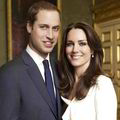2014.04.15. 22:28
Early, preventive development
Learning & Development
Children in kindergarten must master important developmental learning tasks to be ready for the more advanced, abstract learning required of them in the primary grades.
Social and Emotional Development
Language and social interactions are strong influences on children of this age. They need to learn in a social context, and to be allowed to explore with support from responsive adults.
Approaches Toward Learning
- Children need to learn to use all of their senses. From birth to age eight children need lots of practice using all their senses to be able to successfully integrate them.
- Children need to learn to be learners. Materials like modeling clay, blocks, crayons, and dolls can be controlled by children. As they use the materials children learn cause and effect and self-control. Control of the materials encourages children to be active learners and problem-solvers, and lays a foundation for internal motivation.
- Children need to learn to direct their attention and focus clearly while resisting distractions. Children develop their attention spans as they focus during activities that require attention, such as reading books together or talking.
Language Development
Children begin mastering the written symbols of words and numbers between the ages of four to seven. They need the connection between the concept and the written symbol to internalize the formal symbols. For example, at a very young age children may be able to count to ten and name the number three when they see it, but may not be able to understand that three rubber balls can be represented by the number 3 until they are older.
Cognition and General Knowledge
Physical and social experiences are closely tied to children's development. They need to experience the results of their actions to learn to think logically. To learn causal reasoning (if I do this, then that will occur) children need lots of opportunities to physically experience the results of their actions, such as building structures of blocks or playing with toy cars.
Physical Well-Being and Motor Development
Children must make use of their entire bodies and the environment they operate in. They need to make a physical connection to all that is around them and understand their relationship to other things in their environment. As they play and explore they will have the many opportunities they need to develop both large and small motor skills they need.
Useful words from last time
responsible - felelős
roughly- durván (nagyjából)
trust - bizalom
prevent - megelőz
dispell - elbocsát
spoiled - elkényesztetett (kutya, gyerek)
fine motor skills - finommotorika
gros motor skills - nagymotoros képességek
milestone - mérföldkő
Turn a blind eye - szemet hunyni vmi fölött
pushing to the limit - végletekig csni. vmit..
kids with special need - sajétos nevelési igényű gyerekek
tired of sg - belefáradni vmibe
sick and tired of... - elegy van vmiből
Cesarian - Császár metszés (C section)
on labor - szülni
induce - megindítani
convince - meggyőzni
shettered - kimerült
contraction - összehúzódás
Szólj hozzá!
Címkék: child development
A bejegyzés trackback címe:
Kommentek:
A hozzászólások a vonatkozó jogszabályok értelmében felhasználói tartalomnak minősülnek, értük a szolgáltatás technikai üzemeltetője semmilyen felelősséget nem vállal, azokat nem ellenőrzi. Kifogás esetén forduljon a blog szerkesztőjéhez. Részletek a Felhasználási feltételekben és az adatvédelmi tájékoztatóban.






